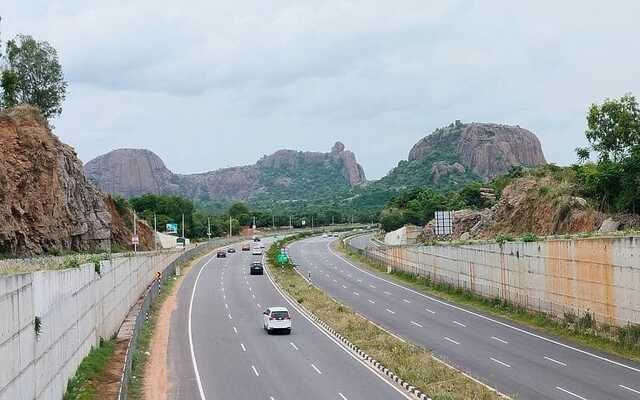Mysuru: The National Highways Authority of India (NHAI) has issued an order banning two-wheelers, three-wheelers, bullock carts, tractors, JCBs, and other agricultural equipment that move slowly from the Bangalore-Mysore Expressway in an effort to increase safety. The 119-km E-Way, which connects Bangalore to Mysore in under 90 minutes, has seen an increase in accidents recently, prompting the restriction, which will take effect on August 1.
The Bangalore-Mysore Expressway has drawn criticism since Prime Minister Narendra Modi officially opened it in March as a result of a slew of mishaps. Over 600 incidents have been reported on the road since it opened to traffic in October, unfortunately resulting in over 160 fatalities. Increased safety measures are being discussed in light of the increase in accidents, particularly with regard to the use of two- and three-wheeled vehicles on expressways.
Currently, cars are only allowed to use the E-Way at a speed of 100 km/h. Concerns concerning lane discipline and traffic flow have been raised, nevertheless, as a result of allowing two- and three-wheelers to use the highway. There have been incidents of motorcycle riders driving recklessly, putting other cars in danger. Because thieves have taken advantage of openings to loot drivers of other vehicles on the freeway, the issue gets worse at night.
Four-wheeler and truck owners who agree that the ban on two- and three-wheelers will make transportation safer and more effective have endorsed the decision. The restriction’s impact on cyclists, however, has created resistance.
The NHAI’s decision to impose this prohibition is an important step in reducing accidents and guaranteeing commuter safety on the Bangalore-Mysore Expressway. The change is anticipated to enhance traffic management and lessen any dangers that may be presented by slower-moving cars. The officials hope to make travelling on the road safer and more efficient for all users by putting this measure into place.




